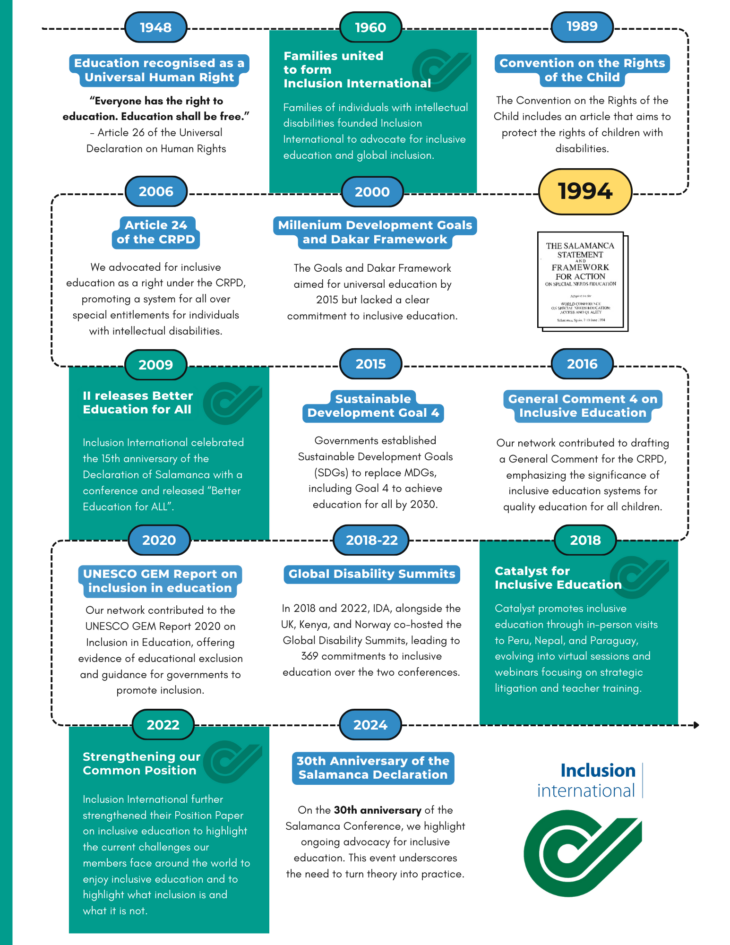Today we celebrate 30 years of the UNESCO Salamanca Conference.
This was the first international recognition that in order to meet the needs of students with intellectual disabilities, the goal must be fully inclusive education for all students.
Inclusive schools must recognise and respond to the diverse needs of students, accommodation of both different styles and rates of learning and ensuring quality education to all
UNESCO – Salamanca Statement, 1994
As a strong movement, we have worked hard to pursue inclusion in education since the Universal Declaration in 1948 and the Salamanca Declaration in 1994.
The Salamanca Statement, signed by 92 governments, recognized that all children should be included in mainstream education settings.
It emphasized that inclusive schools must adapt to learners’ diverse needs rather than expecting those learners to conform to a rigid system.
Despite progress, millions of children are still denied their right to inclusive, quality education.
On the 30th anniversary of Salamanca, we want to look back at our journey and collective advocacy efforts and plan our next steps.
Those with a sensory, physical or intellectual disability are 2.5 times more likely to have never been in school than their peers without disabilities.
GEM Report 2020 on inclusion in education
Below is a timeline of the Inclusive Education and Inclusion International’s involvement in its advocacy. We have pushed at every step of the way for full inclusion and will continue to.

Inclusion International member’s are attending two key events on inclusive education from 13-15 March, 2024.
These events commemorate the 30th anniversary of the Salamanca Statement, a landmark declaration that affirmed the global commitment to fully inclusive education for students with intellectual disabilities.
We encourage our members and those interested to take a look at our resources on Inclusive Education on our resource page here.